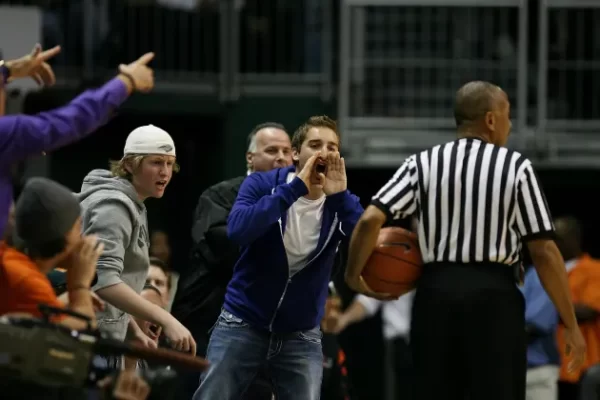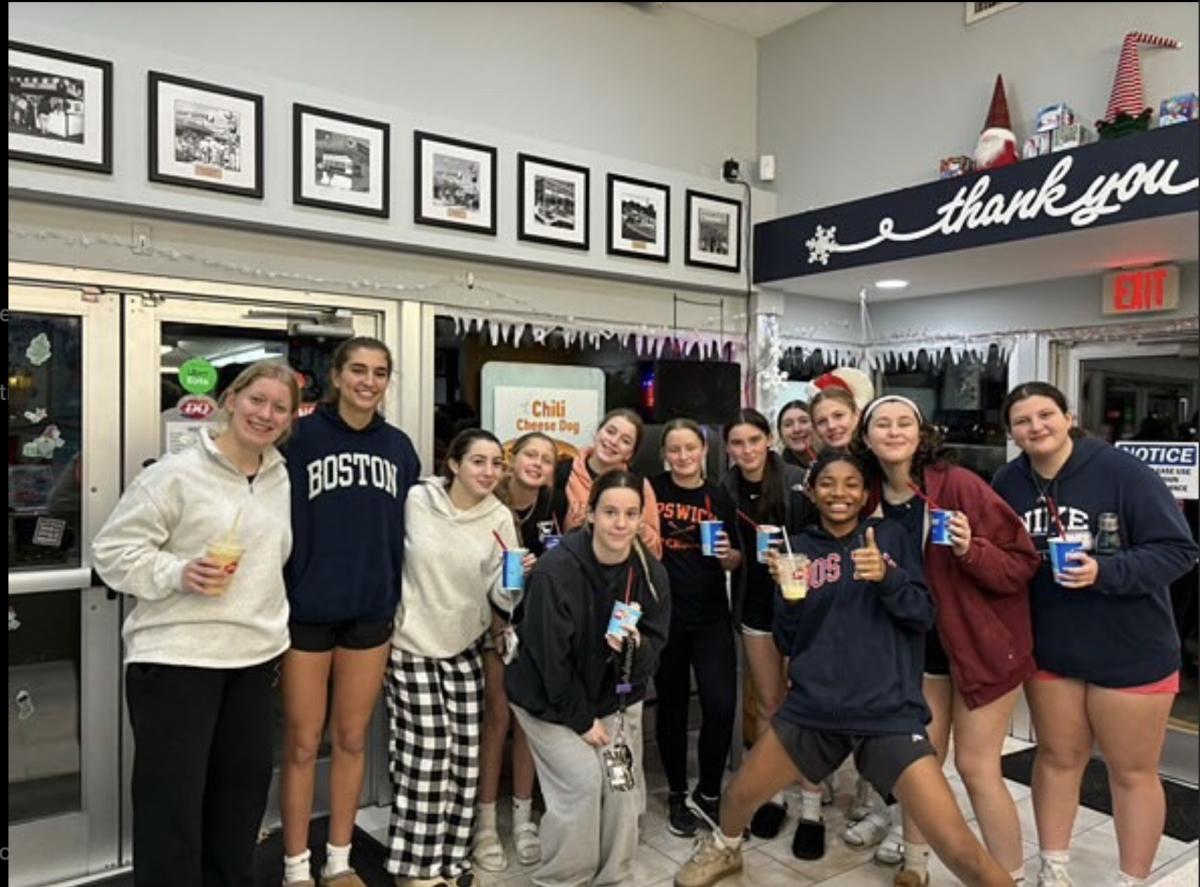
During the 2007 Wimbledon final, Maria Sharapova struggled to serve the tennis ball to her opponent, Venus Williams, due the spectator’s scrutiny. In comparison, figure skater Yulia Lipnitskaya earned a gold medal for her incredible performance in the 2014 Winter Olympics. She later said that she was able to land difficult jumps after getting adrenaline pumps from hearing the crowd cheer for her.
For some student athletes, organized chants and onlookers can understandably invoke feelings of anxiety and fear. Spectators are meant to cheer on their own team, to provide support and strength. In fact, research has shown that athlete’s performances can be positively affected by supportive fans attending their game. However, for Lylah Greenleaf, being called “Buzz Lightyear” was anything but. For Lylah and many other students at Ipswich High, there’s been a common recurrence of unruly spectator behavior at sporting events, with the balance between being helpful and harmful starting to become skewed in the latter’s favor.
Many students, not just in Essex County, feel the support from parents is starting to become a little overzealous, with Lylah going on to say: “…it’s just like, be quiet; this is still a school event”. Several psychologists across the country have spoken with coaches and found that less than 2% of NCAA (National Collegiate Athletic Association) student-athletes play professionally, as well as the National Alliance for Youth Sports stating that 70 percent of kids stop playing sports by the age of 13 partly due to parental behavior. Ipswich High School senior Preston Hansen expressed that if he was able to give feedback to parents and spectators, he would tell them to “not say anything about the other team and only reinforce the positive things that have happened for the team that they want to win”.
For coaches at Ipswich, the sentiment on spectator behavior is slightly different than that of the students. When asked whether she found the spectators’ comments distracting or motivating, Ashley Hersey, a Health and Wellness teacher at Ipswich High School, said: “…for me as a player, I loved it because it gave me butterflies; it made me want to prove people wrong. It made me work harder.” When talking about why she feels that athletes are so bothered by these parents’ comments, she remarked that, “I feel nowadays that athletes aren’t as mentally strong that way and are harder on themselves, like if I made a mistake I’d obviously be really mad at myself but I also would work really hard to correct that mistake.”
Many coaches, not just in Ipswich, are also seeing this worrying shift in athlete behavior, and this is also being witnessed by psychologists. Catherine Sanderson, a professor at Amherst College who teaches sports and psychology, states: “Kids have become a reflection of their parents’ identity. Their success, in academics or sports, is a tangible way for parents to measure their own success: If my kid is a ‘winner’, then I must be a winner too”. Even if the cause is identifiable, the behavior itself is not justifiable. Extracurricular activities for children and teens outside of school are supposed to be mostly lighthearted events to allow kids to connect with one another and indulge in a hobby that doesn’t involve academics. However, excessive negativity from spectators is taking this away from them.
From New York to Amherst to Ipswich, sporting events are seeing a new shift in how spectators behave, as well as too much unregulated energy is driving students away from what is supposed to be a positive experience during their school years. Competition is always welcome in sports. It’s arguably the backbone of most of them; however, there is a concerning lack of sportsmanship to accompany it. Many people, parents and students alike, are losing sight of the balance that makes sporting events entertaining for everyone and not just their preferred team. There needs to be more supervision when it comes to spectator behavior, but that alone isn’t going to fix the problem. Parents must also be aware of the effect of their presence on players; go to support your team, not destroy children’s self-esteem.




